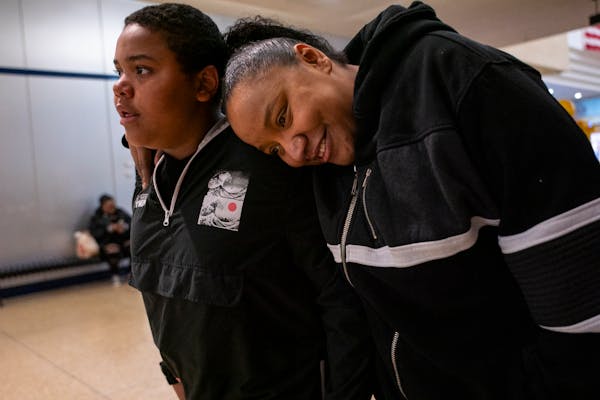A Twin Cities man sentenced last year to a halfway house for his role in a local plot to join ISIS has been returned to federal custody for allegedly failing a polygraph test and watching a CNN documentary on terrorism in Europe.
Abdullahi Yusuf, 21, will return to federal court in Minneapolis early Tuesday for a hearing on allegations that he violated his supervised release in an incident that occurred April 18. According to a report by a U.S. probation officer, Yusuf failed a polygraph test last month while under questioning, then admitted to watching CNN's "ISIS: Behind the Mask," a film about a Belgian ISIS soldier that was on TV at his halfway house.
Yusuf, who was the first of six defendants to plead guilty in a major federal terror recruitment investigation in Minneapolis and one of two who testified at a 2016 trial of three others, has been under supervision at a metro halfway house since Judge Michael Davis sentenced him in November to time served.
The terms of his 20-year supervised release include a provision that Yusuf not "possess, view, access, or otherwise use material that reflects extremist or terroristic views or as deemed to be inappropriate by the U.S. Probation Office."
At Yusuf's first appearance in court, on Monday, Davis described the CNN documentary as a "serious piece of documentary evidence" and found Yusuf to be "a danger to the community" before ordering him to be held in custody.
Yusuf's attorney, Manny Atwal, said afterward that CNN was always showing on the television at Yusuf's halfway house and that she didn't see how the documentary "promotes extremist views."
The lead prosecutor, Assistant U.S. Attorney Andrew Winter, told Davis that the government would not be filing a motion to revoke Yusuf's supervised release. The conditions of his release also include ankle monitoring, meeting with a mentor and continuing education.
Also at Monday's hearing, Davis said he plans to examine potential ethical questions concerning both Atwal and the government's attorneys continuing with the case. Davis said that another prosecutor, Assistant U.S. Attorney John Docherty, gave Yusuf a book during a recent meeting at the halfway house. Winter told Davis on Monday that Docherty was there as "an extension of [Yusuf's] cooperation" and to "ensure Mr. Yusuf continue down the right path of supervised release." The U.S. attorney's office declined to comment further on Monday.
In 2015, Yusuf became the nation's first defendant in a terrorism case to be enrolled in a pretrial civic engagement program, through the Minneapolis nonprofit Heartland Democracy. That ended when he was sentenced, and Davis said Monday that staff are not authorized to visit Yusuf at the halfway house. Davis also took issue with the fact that a second attorney, Jean Brandl, who represented Yusuf until his sentencing, brought him a cake for his recent birthday.
In a unique approach to supervising federal terrorism cases, Davis and the district's Probation and Pretrial Services department introduced the country's first terrorism "disengagement and deradicalization" program. The program included evaluations and training from a German terrorism researcher, Daniel Koehler, who concluded that Yusuf had "a medium to low risk of future offending and a comparatively advanced stage of disengagement," according to court filings.
Before Yusuf's sentencing, in 2015, Davis experimented with placing him in a halfway house. But he returned him to federal custody when a box cutter was found under his bed at the home. Davis did not, however, find that Yusuf actually possessed the weapon, and was also informed that one of Yusuf's roommates had been expelled after planting contraband on another roommate.
Stephen Montemayor • 612-673-1755
Twitter: @smontemayor

Racial disparities in child protection prompt Minnesota legislation, federal complaint

Minnesota State Patrol celebrates diverse new class of troopers

Fired Mpls. teacher accuses management of 'cancerous rot'

